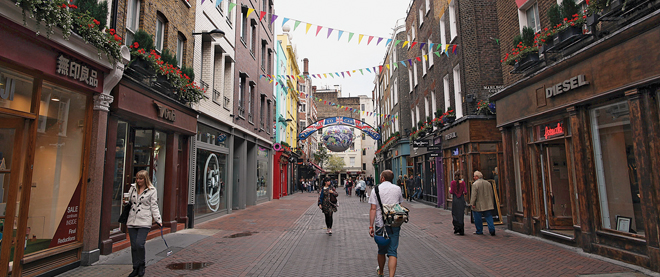Big Olympic chill hits London
Warnings of congestion were heeded—and London is now a ghost town
Dan Kitwood/Getty Images
Share

Week one of the 2012 Games in East London’s Victoria Park, just a javelin’s throw from the Olympic site, and the queue for the zipline ride pretty much says it all: there isn’t one. Nor is there a lineup for the pulled pork sandwich truck, the ice cream stand, the bungee jump or the small battalion of rented Portaloos. This public park, one of London’s specially designated Olympic public sites, is not entirely empty—a couple of hundred spectators sprawl on the green watching women’s gymnastics on Jumbotron screens—but the crowd is thin, picnic tables are easy to be had and, crucially for this neighbourhood, business is not booming as expected.
An uncharacteristically speedy rush-hour drive through central London, via Shoreditch, Islington, King’s Cross, Marylebone and Holland Park, shows the same is true for the rest of the city. On any normal week, trying to get across town would take hours—backups at central London roundabouts are legendary tests of human patience and sanity—and in August this is doubly true. Summer is the time when this town is normally hit by a deluge of some 300,000 tourists, an invasion that causes major visitor hubs—Oxford Circus, Leicester Square, Covent Garden, Soho, Westminster, St. James’s Park and Paddington—to fill up with throngs of gawkers. Now, despite months of warnings about looming congestion, Mayor Boris Johnson’s recorded tube warnings not to “get caught out” by delays, and controversy over the specially designated Olympics lanes cutting a swath across the city, this has not happened. The Boris messages have been pulled. The campaign was too successful by half. London is a ghost town.
People boast of waltzing into restaurants that usually require hours of queuing for a table. News reports say restaurant reservations are down as much as 40 per cent in central London. Big hotel chains like the Hilton Group are slashing room rates and West End theatres are reportedly facing devastating summer losses as the few tourists who are here opt for the thrill of live sports over the magic of the stage. All in all, it’s a disaster for London, a city that not only expected—but also deeply needed—the promised “Olympic boost.” Now the headlines are full of “downgraded expectations,” despite a Games that, so far, has gone off without a hitch.
The question is, what’s actually in it for London? Apart from the immediate feel-good effect, the practical answer seems to be not much at all. The economic Olympic chill is prompting some to ask whether A-list cities, such as London, Tokyo or New York, which are already global economic centres and international tourist hubs, actually have much to gain from hosting the Games. Regeneration is the logical answer, but urban planners are now questioning whether great cities need events like the Olympics to reinvent themselves—particularly culturally robust ones like London. In his recently published paper, “How New York City won the Olympics,” NYU professor Mitchell Moss outlines how New York City, which bid on and lost the 2012 Games six years ago, has managed to implement most of its proposed waterfront regeneration plan, without the hassle of having to actually host the event. The New York City bid, he writes, “explicitly sought to use the Olympics as a catalyst for development of facilities and infrastructure that would have lasting value.”
In London, there is an extensive Olympic legacy plan, but only time will tell how successful that will be. While an enormous amount of regeneration and gentrification has occurred on and around the Olympic site (formerly a derelict wasteland in one of East London’s poorest boroughs), there is a strong argument that much of this development might have happened anyway. The hyper-modern Westfield Stratford megamall, for instance, was already planned before London won the bid. And the creeping gentrification of the East has been under way for nearly two decades.
But the immediate problem for the city is how to cope with a lost summer in the middle of a double-dip recession. It appears the Games have driven tourists away. The effect is not unheard of. Both Sydney in 2000 and Athens in 2004 experienced major losses in tourism. The British government’s culture secretary, Jeremy Hunt, last week conceded that it’s “very difficult to predict what will actually happen to consumer spending in one part of London during something like an Olympic Games because the upheaval is so huge. We are hoping to come away net positive in terms of the overall period of the Games but we don’t know.” So what’s the upside again?
Prime Minister David Cameron is all but begging people to return to London, saying fears of overcrowding and delays had been “defeated”—though one suspects the words he was looking for were “dead wrong.”